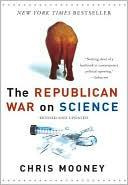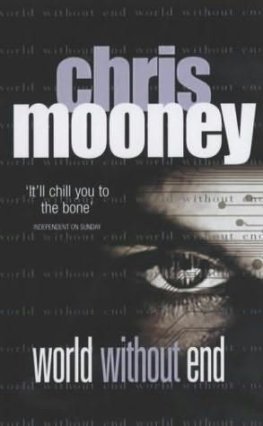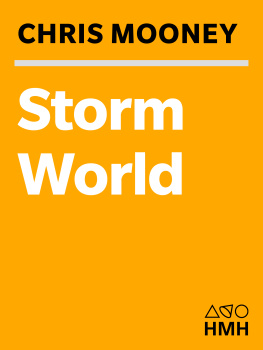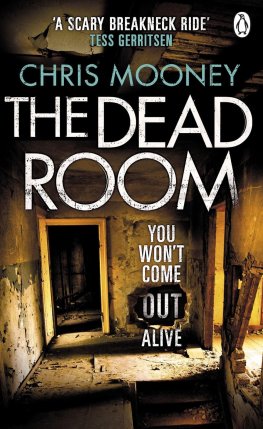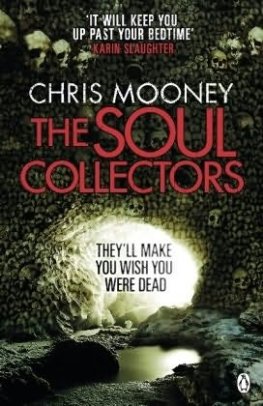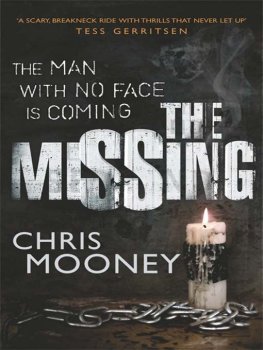Table of Contents
Praise for The Republican War on Science
A frankly polemical survey of scientific finding and procedures in collision with political operations.
New York Times Book Review , Editors Choice 12/25/05
The American conservative movement, as Chris Mooney points out in this fiercely anti-Republican book, has brought together two powerful constituenciesbig industry and the religious rightboth of which have an interest in skewing scientific advice so that it says what they want to hear.
The New Statesman
The Republican War on Science by Chris Mooney: Theres a man who doesnt hide his views. But Mr. Mooney needs to be listened to. Among other things, he wrote a piece for The American Prospect a few months ago titled Thinking big about hurricanes: Its time to get serious about saving New Orleans. Alas, nobody listened.
Paul Krugman recommends RWOS on his interactive page at NYTimes.com
Mooney makes a strong case that science policy is often shaped by partisan expedience and ideology, that there often is a war on scienceor at least an unhealthy disregard for it.
The Weekly Standard
Mooney performs a useful service by researching all the details and interviewing as many of the protagonists as possible. He also enriches the narrative with much historical context, tracing over decades a gradual politicization of science that has culminated in the present farce.
The Guardian
[Mooney] is a talented and energetic young Washington correspondent for Seed , an excellent and relatively new popular-science magazine. In writing a book about science-policy-making in America today, Mooney has bravely tackled a gigantic and complex topic.
Washington Post 9/18/05
The Republican War on Science ... does score some major hits when it takes on ideological campaigns against embryonic stem cell research and for intelligent design.
New York Sun
The connections Mooney discusses are crucial, because they provide proof that these [antiscience] actions are politically and economically motivated, rather than based on principled scientific worries.
Science Magazine 10/7/05
Chris Mooneys book detailing the Bush administrations attitude toward science will either horrify or annoy you. Either way, though, its an essential piece of detective work on the nature of science policy-making.
Newark Star Ledger
Chris Mooney has written a stinging indictment of the Republican Partys attitudes toward science, focusing particularly on the manipulative and dismissive thinking and policies of the current administration.
The Christian Century 11/15/05
PREFACE TO THE PAPERBACK EDITION
I wish I could say that since the original publication of the hardcover edition of The Republican War on Science in the fall of 2005, the situation I denounced at that time had visibly improved. If anything, it has gotten worse. New attacks on science have emerged continually from the Bush administration, from Republicans in Congress, and at the state level (the latter most prominently involving the teaching of evolution). In light of these developments, I believe the argument presented in this book, which centrally attributes todays glut of politically motivated outrages against science to modern conservative ideology and attempts to appease key Republican interest groups, holds up very well. But because so much has happened, I would be remiss to release this paperback without exploring more recent events and their significance to the increasingly high-profile saga of science and politics in the United States.
This preface, along with updates at the end of Chapters 7 through 13, seeks to accomplish that task. But first, it seems fitting to reflect here on why The Republican War on Science has attracted such a high level of attention. As a first-time author, I was a bit staggered. I am confident that I wrote a strong and needed book, but I also believe that something else was afoot. Call it zeitgeist: Science policy rarely counts as a high-profile issue, but in recent years, the notion that the Bush administration might in some sense be antiscience has increasingly resonated. It has become a kind of Ur-narrative regarding this presidency, I suspect, because it reaffirms central suspicions about Bush nourished even by many who once supported him: that hes in a bubble walled off from reality; that he takes matters on faith; that he allows ideology to trample expert opinion; that he staffs the government with cronies who run it incompetently.
In other words, widespread concerns about the mistreatment of science by Bushs administration cannot be fully understood except in the context of related worries about the overselling of the Iraq war based on dubious intelligence, or about our governments pathetically inept response to Hurricane Katrina. After all, one key case study of science abuse on the part of top Bush administration officials lies in their repeated promotion of the dubious notionas a rationale for preemptive war, no lessthat Iraqs confiscated aluminum tubes were intended for centrifuges and uranium enrichment rather than for rocketry (a claim that nuclear experts almost uniformly rejected). Does that sound familiar? If so, its because the administration has shown a similar reliance on scientific outlier perspectives on any number of other issues.
Or consider New Orleans and Hurricane Katrina. President Bush himself arguably misrepresented the state of knowledge when he so confidently declared, just after the storm, I dont think anybody anticipated the breach of the levees. In fact, countless engineering and hurricane experts knew that New Orleanss underfunded levee systems might not withstand a direct hit from a major storm; in the event, even a sideswipe from Katrina did the city in. No wonder that when the hardcover edition of this book appeared at around the time of the destruction of much of New Orleans, my audiences repeatedly asked me to interpret recent events in light of my war on science thesis. (Perhaps my story also resonated because my mothers home, in the citys Lakeview neighborhood, had just been swamped by ten feet of floodwater.)
The politics of science manages to snuggle up alongside these higher-profile subjects of war and disaster because theyre all part of a package, a collection of anecdotes that together speak the same message: The president doesnt seem to care about whats going on in the reality-based community. If mistreatment of science reverberates as an issue, it is because it is emblematic of why so many Americans oppose George W. Bush to begin with. They think that he is unfit to lead and that those he appoints cannot competently administer a government with such a wide range of duties, virtually all of which require some form of expertise (often scientific) if they are to be carried out properly. Bushs meeting with the controversial novelist Michael Crichton to discuss global warmingaccording to journalist Fred Barnes, the two talked for an hour and were in near-total agreementtypifies the presidents disregard for the critical role of legitimate expertise in decision-making.
So prominent have complaints about the administrations war on science become that even president Bush has responded, albeit obliquely, to them. To be sure, Bush did not explicitly acknowledge the criticisms that have become so widespread (and that this book epitomizes). Nevertheless, I believe that Bush sought at least in part to neutralize his detractors by announcing, in his 2006 State of the Union address, a new plan to promote science education and shore up Americas scientific competitiveness. Then Bush got himself photographed peering into a microscope at a high school in Dallas (in Texas, at least, Bush and science are still chums).


